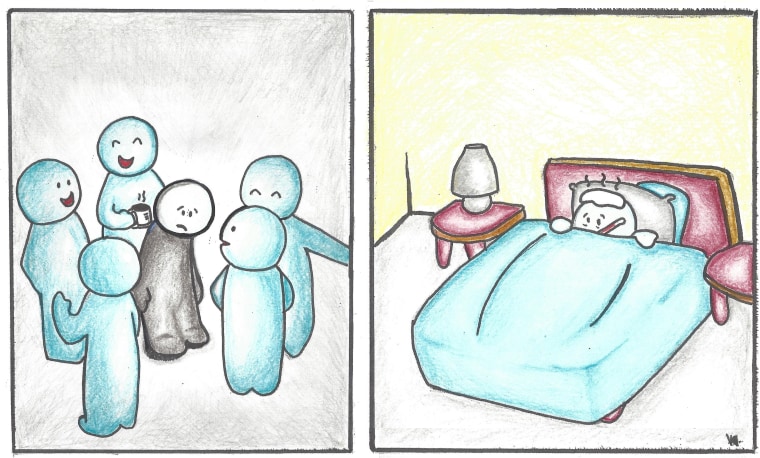Coping with an illness is always easier with a little help from your friends. But what if you don't feel a connection with anyone?
People who are lonely report more severe symptoms and feel worse when battling a cold than less-lonely individuals, a study published Thursday in Health Psychology found.
The results likely apply to other stressful scenarios, like losing a job or getting a divorce, with lonely people experiencing more malaise under those circumstances, too, said co-author Christopher Fagundes, assistant professor of psychology at Rice University in Houston.
“The mind and the body are very, very connected in a lot of ways,” Fagundes told TODAY.
“When we’re confronted with things like an illness, a divorce or other relatively traumatic events, people who don’t feel they can use others for support and security fare much worse.”

For the study, led by Fagundes and graduate student Angie LeRoy, 213 healthy people were given nasal drops that contained a common cold virus. Yes, people actually agreed to be infected with a cold, but were well compensated so there wasn’t too much “squeamishness” about the consequences, Fagundes said.
The participants filled out questionnaires to measure how lonely they felt and how much social contact they had with other people. Then, the 160 people who actually became sick from the drops hunkered down in a hotel for five days and reported their symptoms.
It turned out lonely people weren’t more likely to get sick than their happier counterparts, but they complained of more severe cold symptoms, felt worse and suffered more, the study found.
RELATED: The biggest health threat facing middle-aged men is loneliness
That may be because stress impairs the immune system in a way that promotes inflammation. People who are lonely have a more exaggerated inflammatory response, which makes them feel worse, Fagundes said.
Another explanation may be that social support psychologically buffers you from the negative effects of stress. But when you don’t feel supported by others, you miss out on that benefit.
What surprised Fagundes is that the size of a person’s social network didn’t matter. High-quality relationships can happen in small groups, while someone surrounded by lots of people can still feel lonely, the study notes.
Lessons learned:
For doctors: Finding out patients’ level of loneliness could reveal who is more likely to feel worse, which might help in treatment.
For patients: Loneliness matters in how your body physically responds to illness, so try to understand why you’re lonely and how to ease those feelings.
“You might really have to work on why you have those perceptions,” Fagundes said.
“Just being socially active may or may not be the solution if you see the world as a place that is cold and unsupportive. If that’s in your head, no matter how socially active you are, you might not be able to make that switch and feel less lonely without some help.”